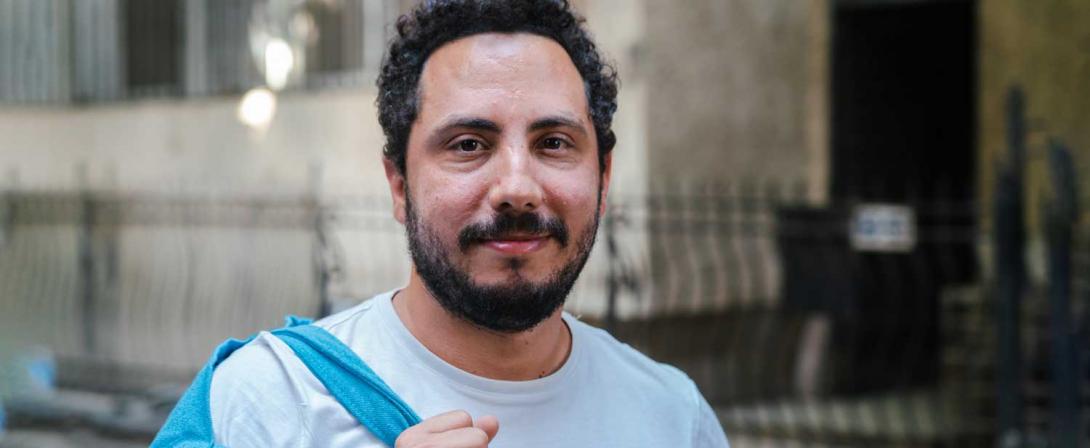In Egypt, Banlastic is a social enterprise full of green fibre

"Plastic bags are useful on average for five minutes … and have a lifespan of 400 years," says Ahmed Yassin. Wherever you go in the world, these bags are damaging the environment, especially marine biodiversity.
Ahmed and two of his friends are from the Egyptian port city of Alexandria. They decided to take action to help achieve the 2030 Sustainable Development Goals. In 2018, they co-founded Banlastic Egypt, a social impact enterprise that advocates for the complete withdrawal of single-use plastics.
Banlastic received support from the Tanmia wa Tatweer initiative, financed by the Danish-Arab Partnership Programme and designed and supported by the African Development Bank. Made up of 80% women, it uses a range of methods: offering alternative, environmentally friendly products; raising awareness as widely as possible through interactive workshops; providing training and organizing environmental events and organizing public beach cleaning events. They use the three-word mantra "reduce, reuse, recycle," and talk to policymakers to find solutions to environmental issues.
This means that waste collection becomes the recycling of suitable materials. Banlastic has forged partnerships with private companies whose industrial know-how makes it possible to give this waste a second life. But Banlastic is doing plenty itself. For example, it has developed cotton bags and food containers using recyclable products in Alexandria, it has installed automatic vending machines to collect used plastic bottles. All based on a clever piece of thinking, "People who deposit bottles in the machines receive a gift in exchange such as cinema vouchers or some other attractive reward," says Banlastic's founder, Ahmed. And he adds, "We don't simply raise awareness about the harm caused by plastics pollution, but also offer a tangible alternative to single-use plastics".
"Business is booming for Banlastic Egypt," says Ahmed with pride. To date, it has 25 public or private partner organizations, both domestic and international, including the embassies to Egypt of Denmark and the United Kingdom, the Bank of Cairo, the delegation of the European Union to Egypt, the Sustainable Ocean Alliance, the Goethe Institute and Lions International.
A coalition of countries met in November 2022 in Uruguay under the aegis of the United Nations to map out a pathway to an international treaty against plastic pollution, with the principle of a legally binding instrument. This meeting was the result of the very first world agreement against plastic pollution signed by 175 countries in March 2022 in Nairobi, Kenya.
Today, all over the world, biodiversity is being hugely challenged: up to one million species are threatened with extinction in the coming decades because of pollution of all kinds.
Source : African Development Bank
